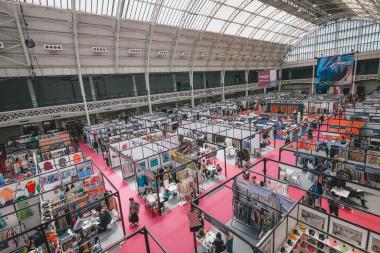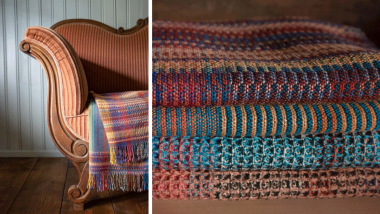Source Fashion doubles again for February 2024
The appetite for responsible sourcing shows no sign of slowing with Europe's fastest-growing platform, Source Fashion expanding again for its next edition with a 50% increase in exhibitors to over 320 from around the world.
The gateway to the UK fashion industry, Source Fashion takes place on 18th - 20th February at Kensington Olympia London putting international manufacturers and suppliers at the fingertips of UK brands.
Source Fashion offers a unique experience for decision-makers in buying, sourcing and procurement, with the reassurance of knowing that every exhibitor has been audited to ensure sustainability and transparency remains at the heart of their business model. The next show unites manufacturers from the UK, India, Portugal, Turkey Madagascar, China, Sri Lanka, Nepal, Peru, Philippines, Ethiopia and many more. The show will also see the debut of manufacturers from Mongolia, Lithuania, and Tunisia.
Suzanne Ellingham, Director of Sourcing of Source Fashion says; "Visitors will love the quality, diversity and variety of producers, makers and manufacturers from around the world with the best of the best in terms of high-quality knitted apparel, luxury wool knits, leather, denim, and more across our sectors including Fabrics, Accessories, Sportswear, Garment Manufacturers, Packaging, Yarns, Trims and Fixtures, plus Design & Technology."
Connecting global manufacturers and suppliers to buyers who want the security in knowing every conversation is one that could lead to a new range creation, Source Fashion is the gateway to retail for manufacturers and suppliers from across the world. From raw materials, fabrics, trims, and packaging, all the way through to contract manufacturers offering in house design services, the show brings the inspiration and tools together in one exciting destination to bring new ranges to life.
The July 2023 show welcomed some of retail's biggest names. Buyers, sourcing managers, product developers, technologists, and designers from brands and retailers including John Lewis, Mountain Warehouse, Fila, Selfridges, H&M, Lipsy, Lyle & Scott, Joules, FILA, Perry Ellis, JoJo Mamman Bebe, Monsoon, Fatface, Lulu Guinness, Next, Sainsburys, Vivienne Westwood, Stitch Fix, ASOS, Bella Freud, Burberry, Fat Face, Hackett, Harrods, NBrown, Monsoon and many more came to explore and source from Source Fashion's diverse mix of audited exhibitors.
With a content stage dedicated to presenting and discussing the latest trends, innovations, and topics in responsible and sustainable manufacturing from internationally renowned industry professionals, as well the inspirational Source Catwalk shows, Source Fashion is the must-attend event for the fashion community.
Source Fashion
Good Results PR











